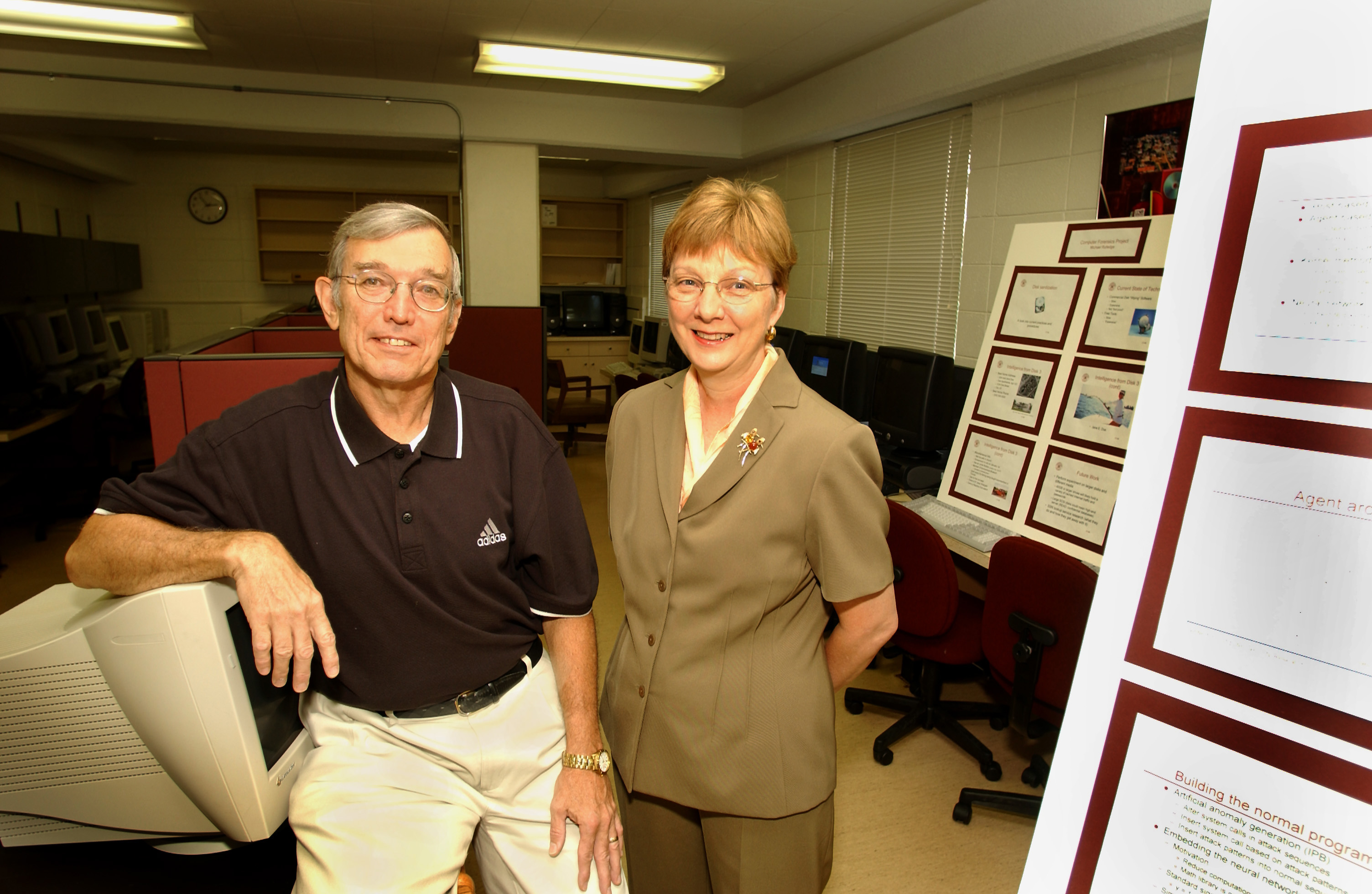Contact: Phil Hearn

Ray Vaughn and Susan Bridges
Mississippi State will receive nearly $800,000 from the National Science Foundation to help protect networked computer systems and other critical national infrastructures against the threat of cyber attacks.
The Cyber Trust grant of $793,156 from the NSF's Directorate for Computer and Information Science and Engineering will enable the university's nationally recognized Center for Computer Security Research to strengthen and expand its work in the field.
"This new award is a tremendous achievement for MSU's computer security center," said Colin Scanes, MSU vice president of research and graduate studies.
Ray Vaughn, a computer science and engineering professor who directs the center, noted, "This is a highly competitive award that we believe went to only about 10 percent of those submitting proposals.
"The funding will allow us to purchase additional hardware infrastructure that we need to continue our research into security and reliability of high-performance computing systems," he added. "And most importantly, it will fund four doctoral student graduate research assistants for the three-year project duration."
A Hattiesburg native and retired Army colonel who once directed communications and computer systems for the Pentagon, Vaughn said the MSU center has collected more than $7 million in external funding since its creation six years ago. Other principal investigators on the Cyber Trust project include professor Susan Bridges and assistant professor Yogi Dandass, both of the computer science and engineering department. The NSF grant is effective Oct. 1.
"The Center for Computer Security Research continues to do state-of-the-art research in the areas of information assurance, as evidenced by the level of success it has had in attracting highly competitive funding," said professor and department head Julia Hodges. "This latest NSF funding is another indicator that the computer security research being conducted at MSU is considered to be among the top in the nation."
The NSF issued a solicitation for Cyber Trust proposals earlier this year as part of a $30 million national program designed to promote research into more dependable, accountable and secure computer and network systems.
"The risks of identity theft, e-mail viruses, denial-of-service attacks, system glitches, and other online hazards often make the average person's reliance on computer systems more of a leap of faith than a bond of trust," said NSF program director Carl Landwehr. "People need computer systems they can rely on."
NSF senior adviser Eugene H. Spafford of Purdue University noted interconnected computer systems are part of the nation's critical infrastructure--as well as part of people's homes, cars and offices. The goal of Cyber Trust research, he said, is to "make these systems and their successors less vulnerable to attacks."
The Cyber Trust program seeks innovative proposals in three broad areas: fundamental research, multi-disciplinary research, and education and workforce development. The program's award portfolio is aimed at advancing the cyber security research frontier, building a national education and workforce capacity, and ensuring new knowledge can be put into practice. All awards made are subject to the requirements of the Cyber Security Research and Security Act.
Vaughn joined the MSU faculty in 1997 and a year later, he played a lead role in gaining prestigious National Security Agency certification for the university as one of the first 26 national Centers of Academic Excellence in Information Assurance Education. MSU computer science and engineering students regularly train under some eight-10 faculty members in a new security center laboratory featuring approximately $200,000 in the latest equipment.
NEWS EDITORS/DIRECTORS: For more information, contact Dr. Vaughn at (662) 325-7450 or Ray Vaughn; Dr. Bridges at 325-7505 or Susan Bridges.